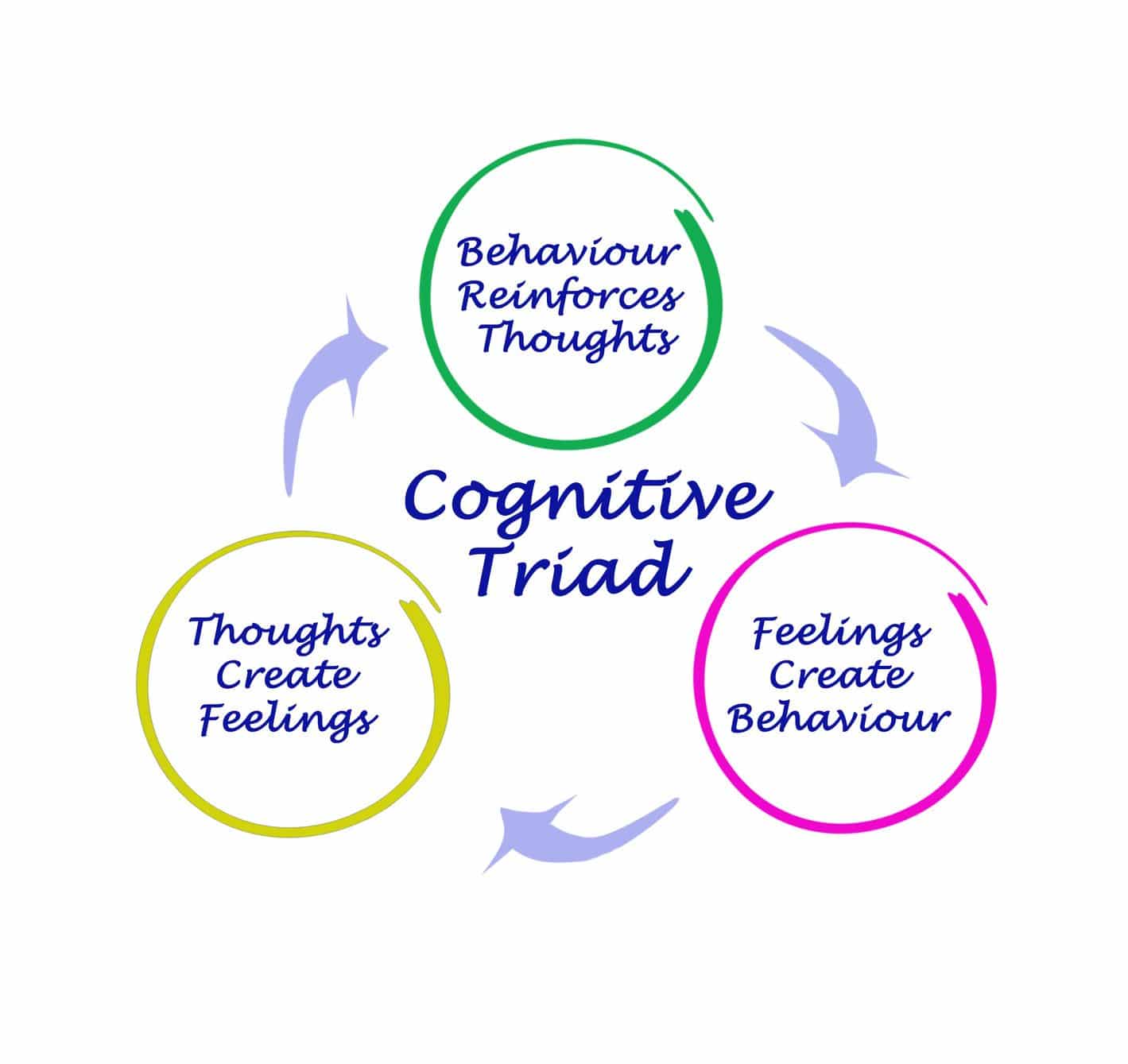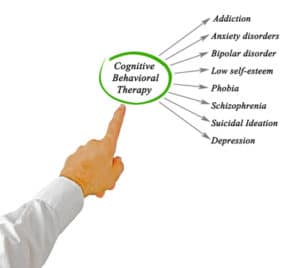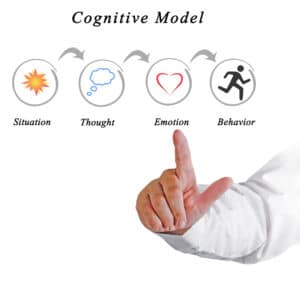Cognitive Behavioural Therapy
(CBT)
Book an appointment online
Contact Me
-
Visit My Clinic
Grenville Court, Burnham -
Give Me a Call
07708 893 082 -
Send Me a Message
[email protected] -
Opening Hours
Mon - Friday: 9AM - 6PM
What is Cognitive Behavioural Therapy? (CBT)
Cognitive Behavioural Therapy (CBT) is a talking therapy that can help you manage your problems by changing the way you think and behave. It is most commonly used to treat anxiety and mild forms of depression, but can be useful for other mental and physical health problems.
Cognitive Behavioural Therapy (CBT) is a talking therapy that can help you manage your problems by changing the way you think and behave. It is most commonly used to treat anxiety and mild forms of depression, but can be useful for other mental and physical health problems.
I offer CBT services in Bourne End, Burnham, Cookham, Maidenhead, Marlow, Slough, Taplow and Windsor.

CBT cannot remove your problems, but it can help you deal with them in a more positive way. It is based on the concept that your thoughts, feelings, physical sensations and actions are interconnected, and that negative thoughts and feelings can trap you in a vicious cycle.
CBT aims to help you crack this cycle by breaking down overwhelming problems into smaller parts and showing you how to change these negative patterns to improve the way you feel.
Unlike some other talking treatments, CBT deals with your current problems, rather than focusing on issues from your past. It looks for practical ways to improve your state of mind on a daily basis.

CBT cannot remove your problems, but it can help you deal with them in a more positive way. It is based on the concept that your thoughts, feelings, physical sensations and actions are interconnected, and that negative thoughts and feelings can trap you in a vicious cycle.
CBT aims to help you crack this cycle by breaking down overwhelming problems into smaller parts and showing you how to change these negative patterns to improve the way you feel.
Unlike some other talking treatments, CBT deals with your current problems, rather than focusing on issues from your past. It looks for practical ways to improve your state of mind on a daily basis.
How does CBT work?
Cognitive Behavioural Therapy (CBT) can help you make sense of overwhelming problems by breaking them down into smaller parts.
Cognitive Behavioural Therapy (CBT) can help you make sense of overwhelming problems by breaking them down into smaller parts.
 In CBT, problems are broken down into five main areas:
In CBT, problems are broken down into five main areas:
- Situations
- Thoughts
- Emotions
- Physical feelings
- Actions

In CBT, problems are broken down into five main areas:
- Situations
- Thoughts
- Emotions
- Physical feelings
- Actions
CBT is based on the theory of these five areas being interconnected and affecting each other. For example, your thoughts about a certain situation can often affect how you feel both physically and emotionally, as well as how you act in response.
Seeing a therapist will support you to work on stopping negative thought cycles. There are helpful and unhelpful ways of reacting to a situation, often determined by how you think about them. CBT aims to stop negative cycles by breaking down things that make you feel bad, anxious or scared. By making your problems more manageable, CBT can help you change your negative thought patterns and improve the way you feel.
If you feel CBT is right for you it will be necessary to have a session with a therapist once a week. The course of treatment will usually last for between 5 and 20 sessions, with each session lasting 60 minutes.
During the sessions, you will work with your therapist to break down your problems into their separate parts – such as your thoughts, physical feelings and actions.
CBT can help you get to a point where you can achieve this on your own and tackle problems without the help of a therapist.
What can CBT be used for?
- Anxiety
- Mild Forms of Depression
- Obsessive compulsive disorder (OCD)
- Panic disorder
- Post-traumatic stress disorder (PTSD)
- Phobias
- Eating disorders, such as anorexia and bulimia
- Sleep problems, such as insomnia
- Anxiety
- Mild Forms of Depression
- Obsessive compulsive disorder (OCD)
- Panic disorder
- Post-traumatic stress disorder (PTSD)
- Phobias
- Eating disorders, such as anorexia and bulimia
- Sleep problems, such as insomnia
What can I expect?
 When you first contact my services, we will discuss over the phone, Skype or by email what you would like from CBT. If after this you would like to be assessed for CBT, we will agree a time and location for your initial assessment.
When you first contact my services, we will discuss over the phone, Skype or by email what you would like from CBT. If after this you would like to be assessed for CBT, we will agree a time and location for your initial assessment.
The initial assessment session is an assessment that will take thirty minutes. This time is spent talking through in more detail what symptoms you have and what you hope to achieve from CBT. I will take information to help me understand your circumstances or specific situation and we will think through how we can best work together. Following this, if you feel we can work together, we will then agree to meet on a regular basis with booked appointments.
CBT sessions are 60 minutes long and ideally should take place at the same time and same day each week. During the sessions, you will work with me to break down your problems into their separate parts – such as your thoughts, physical feelings and actions. I recommend that if, at the end of your first session, you decide to continue with CBT, you will be offered 6 – 10 initial sessions, after that you and I will review the situation, but you can opt to finish CBT at any time.

When you first contact my services, we will discuss over the phone, Skype or by email what you would like from CBT. If after this you would like to be assessed for CBT, we will agree a time and location for your initial assessment.
The initial assessment session is an assessment that will take thirty minutes. This time is spent talking through in more detail what symptoms you have and what you hope to achieve from CBT. I will take information to help me understand your circumstances or specific situation and we will think through how we can best work together. Following this, if you feel we can work together, we will then agree to meet on a regular basis with booked appointments.
CBT sessions are 60 minutes long and ideally should take place at the same time and same day each week. During the sessions, you will work with me to break down your problems into their separate parts – such as your thoughts, physical feelings and actions. I recommend that if, at the end of your first session, you decide to continue with CBT, you will be offered 6 – 10 initial sessions, after that you and I will review the situation, but you can opt to finish CBT at any time.
My Commitment to You will be:
- To listen to you, accept you for who you are and be honest with you.
- View the CBT session as your space and allow you to choose whatever you want to discuss.
- I will never tell you what you should and shouldn’t be doing or thinking and I won’t judge you.
- I will not ask you to do things you do not want to do and will only work at a pace you are comfortable with.
- During your sessions, I will check you are comfortable with the progress you are making.
- I will not have all the answers to your problems but believe that with my support you can find your own solutions to whatever is troubling you.
- I will let you know what to expect from a course of treatment. If it is not appropriate, or you do not feel comfortable with it, I can recommend alternative treatments.
- Everything discussed will be totally 100% confidential.
- To listen to you, accept you for who you are and be honest with you.
- View the CBT session as your space and allow you to choose whatever you want to discuss.
- I will never tell you what you should and shouldn’t be doing or thinking and I won’t judge you.
- I will not ask you to do things you do not want to do and will only work at a pace you are comfortable with.
- During your sessions, I will check you are comfortable with the progress you are making.
- I will not have all the answers to your problems but believe that with my support you can find your own solutions to whatever is troubling you.
- I will let you know what to expect from a course of treatment. If it is not appropriate, or you do not feel comfortable with it, I can recommend alternative treatments.
- Everything discussed will be totally 100% confidential.
Costs involved in CBT
Initial 30 Minute Assessment is £30
60 Minute CBT Sessions are £60
Initial 30 Minute Assessment is £30
60 Minute CBT Sessions are £60
 I am the founder of Caroline Bronte the Counselling, Coaching and Therapy Company. I have worked as a successful counsellor, life coach and therapist for the last 20 +years and utilise various therapies to enhance my work.
I am the founder of Caroline Bronte the Counselling, Coaching and Therapy Company. I have worked as a successful counsellor, life coach and therapist for the last 20 +years and utilise various therapies to enhance my work.